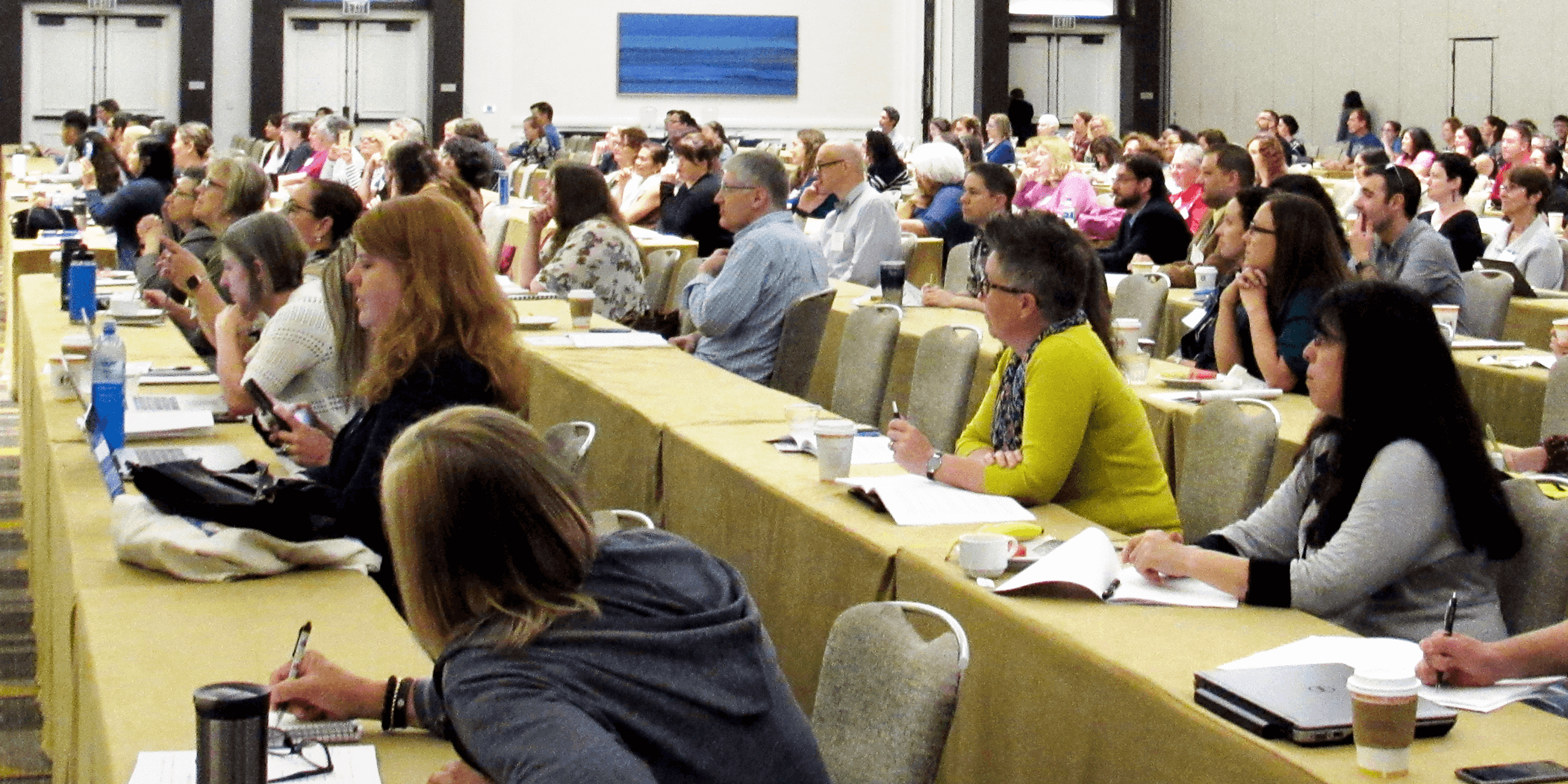The National Conference on Acceleration in Developmental Education: Prioritizing Equity for Our Students
By Haleh Azimi and Elsbeth Mantler

The Accelerated Learning Program (ALP), a corequisite pairing of Composition I and a developmental education integrated reading and writing course, was first adopted in 2009 at the Community College of Baltimore County (CCBC).
At its inception, ALP was a small-scale reform at CCBC, but it quickly became a model that other states and institutions adopted in their developmental education reform efforts. Longitudinal data on ALP and other corequisite programs suggest that corequisite reforms in math, English, integrated reading and writing, and English for speakers of other languages (ESOL) courses are the best option for students who place in below-credit courses.
The National Conference on Acceleration in Developmental Education (CADE) originated soon after the creation of the ALP model to highlight corequisite developmental education reforms as a way to help students persist in college. CADE 2022 was held in Annapolis, Maryland from June 13 through June 15.
National CADE 2022 was built on the idea that developmental reform efforts cannot occur in silos if they are going to serve the most marginalized students, such as students of color, returning students, veterans, and neurodiverse student populations. For CADE 2022, the conference chairs intentionally broadened the call for proposals from a focus on corequisite courses to include proposals on higher education reform movements that put equity at the forefront, include students as part of the conversation, and inform developmental education reforms with data. The student-centered and data-informed plenary and concurrent sessions promoted ongoing engagement to move the needle toward equitable structural and teaching and learning practices within postsecondary institutions.
Students First
National conferences, such as CADE, typically discuss the need to put students first; however, as practitioners and researchers, we sometimes overlook our students’ voices. National CADE 2022 involved students in new ways to help foster a community of learning between students, faculty, staff, administrators, and researchers and promote a strong equity agenda.
National CADE 2022 invited students to stay overnight at the hotel to engage in the conference as both participants and presenters. Each of the student breakout sessions was grounded in equity-based topics, including a presentation on bridging cognitive and noncognitive aspects of learning by Ang Hoang, a Community College of Philadelphia ESL program graduate, and their professor, Francie Woodford; a presentation on addressing noncognitive issues in the classroom by CCBC ALP students Yolanda Holland-Baker and Sadaf Kaleem with their professor, Nancy Murray; and a co-presentation on using letter writing as a teaching tool by CCBC ESL students Krishna Acharya, Mariam Romba, and Ezekiel Yap and their professors, Jessica Farrar and Sara Osman. These student-focused sessions were the highlight of National CADE 2022, and connecting with students will remain a priority for future CADE events.
Additionally, CCBC students who earned the Outstanding Achievement in the Accelerated Learning Program Award were featured in the National CADE 2022 program. Involving community college students in a meaningful way and highlighting their work with a capacity-oriented lens helped faculty, staff, and administrators better understand their academic and noncognitive needs. One example of student involvement occurred during the plenary address by Dr. Maxine Roberts, director of Strong Start to Finish, where she interviewed students to capture their experiences with placement practices. CADE 2022 provided students a seat at the table, and the conference organizers worked to ensure that they were valued and listened to throughout their involvement with the conference.
Using Data to Make Equitable Informed Decisions
ALP has transformed the field of developmental education, and this has been possible because of its collection of longitudinal data. One current focus is on disaggregating data to better understand and make informed institutional changes to help close the achievement gap through equitable teaching and learning opportunities for historically marginalized students. In her plenary speech, Dr. Amelia Parnell, the vice president for research and policy at NASPA – Student Affairs Professionals in Higher Education, focused on the importance of using data to implement further developmental education reforms in corequisite classes, such as anti-racist placement practices, equity-based assessment practices, and embedded and holistic student supports. CADE 2022 included sessions on the integration of embedded student support and collaboration with student services to ensure the success of students at institutions such as Northeast Wisconsin Technical College and CCBC.
The conference also featured institutions working toward adopting and implementing equitable placement practices, including the University of Alaska Anchorage, Oakland Community College, the Michigan Center for Student Success, and CCBC. Professor Terrence Willett of Bakersfield College in California shared data relating to the transition from high school to community college before and after the implementation of math placement reform mandated by Assembly Bill 705, which requires the use of multiple measures for placement.
On the Horizon
Work relating to equitable approaches to institutionalizing programs and practices that best serve students will remain a priority for the National Conference on Acceleration in Developmental Education in 2023. This annual gathering of students, faculty, staff, administrators, and data analysts is an exciting opportunity to further discuss ways to close the achievement gap.
| Haleh Azimi is the co-director of ALP at CCBC, the conference co-chair of CADE, and a part-time senior research assistant at CCRC. Elsbeth Mantler is the co-director of ALP at CCBC and the conference co-chair of CADE. |
